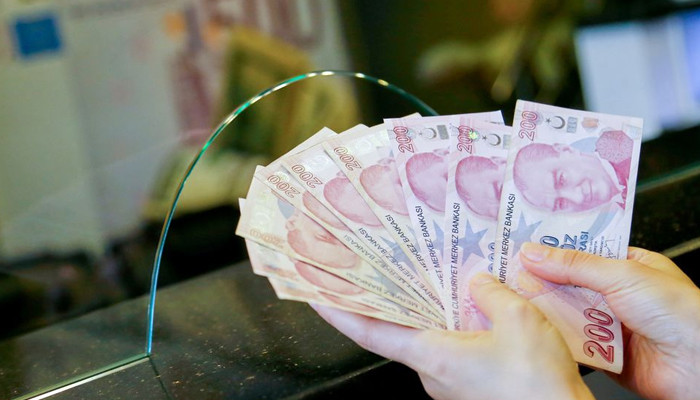Turkey seeks to reassure allies on Nato enlargement
Turkey has called on Sweden and Finland to do more to settle a dispute over the Nordic pair’s bid to join Nato and said expansion of the military alliance was vital to stability in its own neighbourhood.
Hulusi Akar, a former four-star general who once led the Turkish armed forces and is now the country’s defence minister, defended Turkey’s role in Nato against criticism that its objections to the Nordic countries’ joint application and its friendly ties with Russia were harming the alliance.
“A Nato without Turkey is unthinkable,” Akar, who meets British defence secretary Ben Wallace in the UK on Monday, said in an interview with the Financial Times. “We are a tested nation, a tried army that would never act contrary to our alliances. There is no cause for concern.”
Turkey has a strategic position on Nato’s southern flank and hosts US nuclear weapons at an air base across the frontier from Syria, Iran and Iraq. Turkish fighter jets patrol the skies above the Black Sea for Nato and the government has blocked Russian warships from using its straits during the war in Ukraine.
But Turkey has refused to approve Nato membership for Sweden and Finland. It wants Sweden in particular to crack down on activities by the Kurdistan Workers’ party (PKK), an armed militia that has fought the Turkish state for decades. It also wants the extradition of asylum seekers it says belong to an Islamic network it blames for a violent 2016 coup attempt.
“We fully support Nato’s open-door policy. Just as we respect the candidates’ desire to become members, they must respect our security concerns,” Akar said. “We want this problem resolved, but there is nothing we can do. We are waiting for Sweden and Finland to complete their work and solve this.”
Sweden’s prime minister Ulf Kristersson said last week negotiations with Turkey were “going very well”. He previously expressed frustration with Ankara’s demands, including extradition requests that Swedish courts have rejected on human rights grounds, saying Turkey wanted things his government could not give.
The Nordic pair ended decades of non-alignment after Russia invaded Ukraine last year, and western officials have warned that the foot-dragging works to Moscow’s advantage. Turkish and Swedish officials have said approval may not occur until after Turkey holds elections, due in June.
Turkey’s president Recep Tayyip Erdoğan has crafted a complex partnership with Russia’s Vladimir Putin, despite being on opposing sides of conflicts in Syria and Libya. The relationship has at times kept Turkey out of step with Nato’s 29 other members, including in 2019 when it purchased a Russian air defence system.
That purchase soured US-Turkish relations and has hampered Ankara’s efforts to obtain new-generation fighter jets and modernisation kits for its ageing fleet. US president Joe Biden’s administration has signalled its support for Ankara’s purchase of F-16 jets, worth billions of dollars, conscious that Turkey could seek to buy planes from non-Nato countries.
Akar said he was “optimistic” the US Congress would allow the sale, despite continued opposition from key lawmakers over Turkey’s rights record and threats to US allies. “We want to strengthen our military and the US wants Nato countries to spend more on defence, but then puts restrictions on our military purchases,” he said.
Erdoğan has condemned the Ukraine invasion and Turkish defence companies have supplied Kyiv with combat drones. But Turkey has refused to join western sanctions against Moscow and has instead deepened trade ties since the war began.
“Someone has to speak with Russia . . . without this dialogue there would be deadlock. We would expect the west to thank our president,” Akar said. Erdoğan often spoke by phone with Ukrainian president Volodymyr Zelenskyy, then called Putin an hour later to convey his messages, he said.
Akar helped broker the easing of a Russian blockade of Ukraine’s ports that has allowed some 17mn tonnes of Ukrainian grain to reach global markets and forestall a wider food crisis. He said those negotiations could serve as a model for an eventual peace deal and reiterated a call for a “humanitarian ceasefire” in the conflict.
Turkey is at odds with both Moscow and Washington over its renewed threats to launch another military operation in north-east Syria — where both US and Russian forces are active — to combat the People’s Protection Units (YPG), a Kurdish militia with close links to the PKK but who are armed and trained by the US in the fight against Isis.
Akar declined to say whether a fresh offensive against the YPG was imminent. “When the time and place comes, we will take action as we have in the past as necessary,” he said.
Turkey previously staged major incursions against the group, and Akar said another one would protect Turkey’s borders and prevent “a terrorist corridor that could turn into a political formation that could divide Syria and create instability, not just in Turkey but across the Middle East.”
It fears Kurdish autonomy across the border could stoke separatism among its own, far larger Kurdish minority. Akar urged the US to “emerge from the vicious cycle” and end co-operation with the YPG, which lost tens of thousands of fighters retaking territory from Isis and runs prisons where the jihadis are held.
Turkey was now keen for a “realignment” with Washington, Akar said. “The US is our strategic ally. Our history, our culture, our objectives and our values are shared. When we are strong, Nato is strong.”



